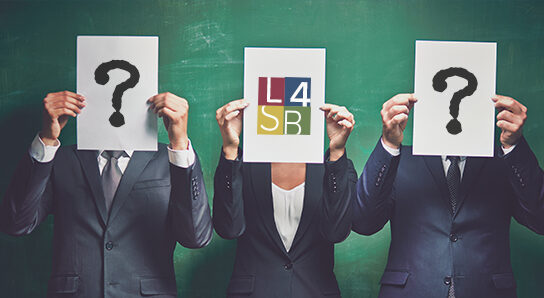In our previous blog article about choosing a business entity, the first and simplest form of business on the “menu” was the “sole proprietorship.” Notice that we referred to this as a business “form” rather than an “entity.” That’s because the business is not an entity – it is YOU. As pointed out in the prior article, this form of business is available only for an individual or a married couple.
What is Sole Proprietorship?
The sole proprietorship is what happens when an individual doesn’t create a business entity. It is historically the first method of doing business. An individual starts selling or trading goods or services and derives income (or loss) from that activity. It is a business form as old as mankind itself. It requires no formal formation agreements and no governmental filings separate from those filed by the individual except as to some matters of taxation and employment.
While the simplicity of starting out as a sole proprietor is appealing, in the modern governmental and legal environment important areas of consideration should be addressed before making the choice to proceed in this manner.
Two of the most important impacted areas involve issues of liability and taxation.
The Option of Forming a Limited Liability Company (LLC)
Self-employed individuals, having no separately recognized entity between themselves and third parties, are personally liable for every debt and obligation of the business and for their actions on behalf of the business and those of their employees. Unlike with some other forms of business, this liability is not limited to the amount of their investment in the business, absent some form of personal guaranty or voluntary assumption of liability. Thus, many businesspeople elect to form a limited liability company or corporation in order to shield their personal assets from seizure to satisfy business obligations.
As with most things though, this decision is not as simple as it looks, and professional advice would be prudent. The shelter seemingly provided by limited liability may be somewhat illusory. Many times, potential liability for negligence in the performance of services or for product deficiencies can be substantially reduced by affordable insurance coverage that would be advisable even for an LLC or corporation. In addition, creditors in the case of many operational liabilities such as leases, bank loans, credit cards or trade accounts will very likely demand personal guaranties or collateral anyway, especially in a startup scenario. Therefore, after all of the trouble of forming a limited liability company or corporation and maintaining the separate entity, many business owners find themselves liable for most of the company’s debts and obligations to virtually the same extent as in a sole proprietorship.
Taxation
Another major difference in owning a sole proprietorship as opposed to another entity involves taxation. When creating a separate business entity, a higher level of planning is available in that the tax treatment of the entity is often optional. A self-employed individual has very few options with regard to the treatment of income or loss, the deductibility of expenses, or the treatment and availability of fringe benefits.
Unlike other entities, the sole proprietorship does not necessitate the filing of a separate income tax return for the entity. Income or loss from a sole proprietorship is reflected on Schedule C of the owner’s Form 1040 individual income tax return. However, the preparation of itself is comparable to the preparation of small business entity returns and will generally increase the cost or time required to prepare the individual return.
Unlike with some corporations, there is no double taxation of a sole proprietorship. However, the tax rates between certain entities may differ and preparing projections with alternative tax rates and treatments may be very beneficial. One tax advantage of a sole proprietor is that any losses incurred in the business are personally deductible in the year incurred. Thus, making some reasoned, well-informed predictions as to the level of success of the business over the first few years is often an important part of planning.
The self-employed individual must pay both the Social Security and Medicare portions.
There are no tax-free fringe benefits available to the self-employed individual, since he or she is the owner of the business and not an employee of the business. The types of retirement accounts available to a sole proprietor are also limited to those available to individuals. Payments to these are not deductible and they carry different restrictions and limitations in some respects to those available in a separate business entity. Moreover, since self-employed individuals do not have an employer to withhold FICA taxes, they must compute and pay Self-Employment tax when filing their individual tax returns.
Sale and Transition of Sole Proprietorship
Finally, the sale or transition to successors of the business differs in a sole proprietorship scenario. Since there are no shares or units of ownership in these entities, a sale of a sole proprietorship is the same as a sale of each of its assets individually. In the event of the owner’s death, each of the assets of the business would pass as part of the estate and the estate itself would take over operation of the business. Upon cessation of the business, there are no liquidating distributions and, in fact, there are no distributions at all in that the self-employed individual is already the owner of each and every asset used in the business and the recipient of all profits and losses.
Once again, these are complex considerations, discussed here only in briefest summary. Unless you are extensively trained in such matters, seek the advice of professionals before deciding on a sole proprietorship or some other form of business.

Speak to an Attorney




